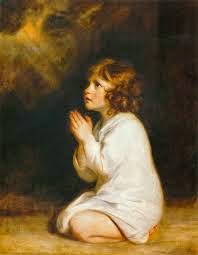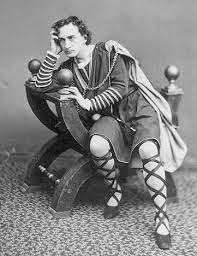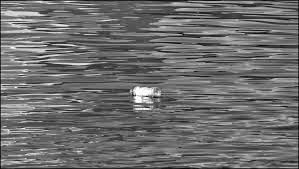One morning this week I decided to look again at the Book of Samuel. Although its first story about a childless woman called Hannah is relatively well known, I wished to find out more about what happened next. Through coming from a medical background, I noted how Hannah's infertility could not have been helped by lack of food and her self esteem was improved by talking to an old priest in the Temple. Since keeping that promise cannot have been at all easy, it was reassuring to see how Hannah maintained the relationship she had with Samuel in the best way she could, and had lots of other children.
The story of Samuel waking up in the night to hear the voice of God was also quite familiar. Since the priest Eli had done such a terrible job bringing up his own children, it did seem a bit irresponsible that a young child happened to be there in the first place. I also needed to consider why Samuel of all people was unsettled in the middle of the night with such devastating news. He was only a child and seemed so happy growing up in the Temple.
The advice Eli gave Samuel that he should go back to his bed and listen out for God seemed faultless by traditional Quaker standards. I wondered how we might react these days should a child come to us in the night with the same story. Perhaps we would get some Calpol, a glass of milk and dismiss it all as a bad dream. It was quite a puzzle to me that this elderly priest with the right response should be so deserving of punishment from God.
In marked contrast to Eli, there could be no doubt that his two adult sons were an absolute menace. Through having been brought up in a very privileged position, they were undoubtedly happy, having a great time, able to commandeer food intended for sacrifice and take advantage of visiting women visiting the Temple. Perhaps Eli concentrated on his sons' good points, such as their education, leadership skills or whether they could play the violin whenever the subject was raised among friends. To avoid facing up to this problem, he may have held on very tight to some memory of characters who were no longer the case. That wish to protect your children may seem instinctive but it leaves them even more vulnerable because those who do not know they are doing wrong do not have a choice.
Eli may have felt considerable relief at having been given a second chance through Samuel. Perhaps this child's character gave him the knowledge that he really did know how to bring up children. Despite this reassurance, as Eli was brought news of his sons misbehaviours, thoughtlessness and crime, it is not difficult to imagine the thoughts going over and over again in his head "Where did I go wrong?"
It may seem strange that I should be writing about an Old Testament story as if this should have any relevance these days. Instead I would argue that the characteristic of being elderly with grown up children is now much more usual than at the time of writing. At the other extremity of our lives, there is often the isolation of old age, when there is no longer status through employment, that compulsive challenge of creating the perfect living environment, expensive holidays or the stamina for cruises. Is there some belief that at some stage in our lives, young people should now be supporting us? The cruel reality for many people is a question of whether those busy, important adults we raised now feel any obligation to see you. When you talk about the old days and the things that still matter to you, is it still possible to respond to the challenge? Is anybody listening?
These days our growing up can also be misleading. We may adopt adult fashion, vote at a very young age, and, through changes in the structure of family life, do not need to wait very long before passing on all our sour grapes to a new generation. Do we perhaps grieve like Eli about the selfishness of today's society, a community in which we feel unsafe, violence against women, young people in search of meaning who sign up to become terrorists and wonder where did it go so wrong? Do we ever ask ourselves why there is such a high suicide rate among young people, why the tiny screen they carry about all the time is so addictive, mental illness is so prevalent among children, why the culture of celebrity holds such an attraction, why anyone should ever wish to buy drugs and their families cluster round soap operas to avoid experiencing their own lives. Most young people grow up with a belief in the importance of winning. People will only respect them if they succeed and love will always come with conditions. Within our Meeting's for Worship, do we ever question the Pied Piper who presents our children with so many other priorities and then takes them all away? It does not take much imagination to find Eli and his children.
At this point in the story I found it helpful to remind myself that whenever God communicates a message, it is always for a reason. Instead of merely predicating the future, this was about an inevitable fate should the present course of action remain unchanged. Whereas Eli might well have been looking back on the past with regret, there was now an opportunity very firmly grounded in the present to turn the situation around. This elderly priest needed to assert his authority and tell his sons what was needed. Samuel's message from God provided a very stern message about the responsibilities of being a parent. At no point in our lives are we entitled to consider that process of guiding, supporting and letting our children know what we think should ever be considered done.
So what does Samuel offer for today’s world? To me this message is about hope. Our world of listening out for God involves maintaining the relationship with have with every new-born baby for the whole of their lives. You do not just give up when they seem more independent, reach a certain age, it all seems anyway to be going wrong, or through happy coincidence, along comes a distraction to make you feel better.
it does seem to me as being so important that we are clear about our understanding of right or wrong. It may not always be possible to influence people directly, discipline or even say what you think, but that does not take away the responsibility of being a good example and a pattern.


























